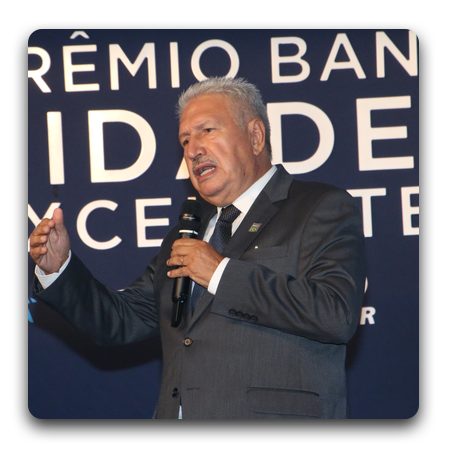Excellent Cities is a pioneering methodology created to enhance the efficiency of public management. To measure the excellence level of a city, we created the IGMA Index, based on an in-depth survey of 450 global cities, identifying the main factors that lead a city to be outstanding to live in.
The IGMA is a technology platform that gathers data from public sources from 5,570 Brazilian cities. In constant evolution, the tool currently includes 62 indicators, organized into six groups: Governance, Fiscal Efficiency and Transparency; Education; Health and wellness; Infrastructure and Mobility; Socioeconomic development and public order; and Sustainability.
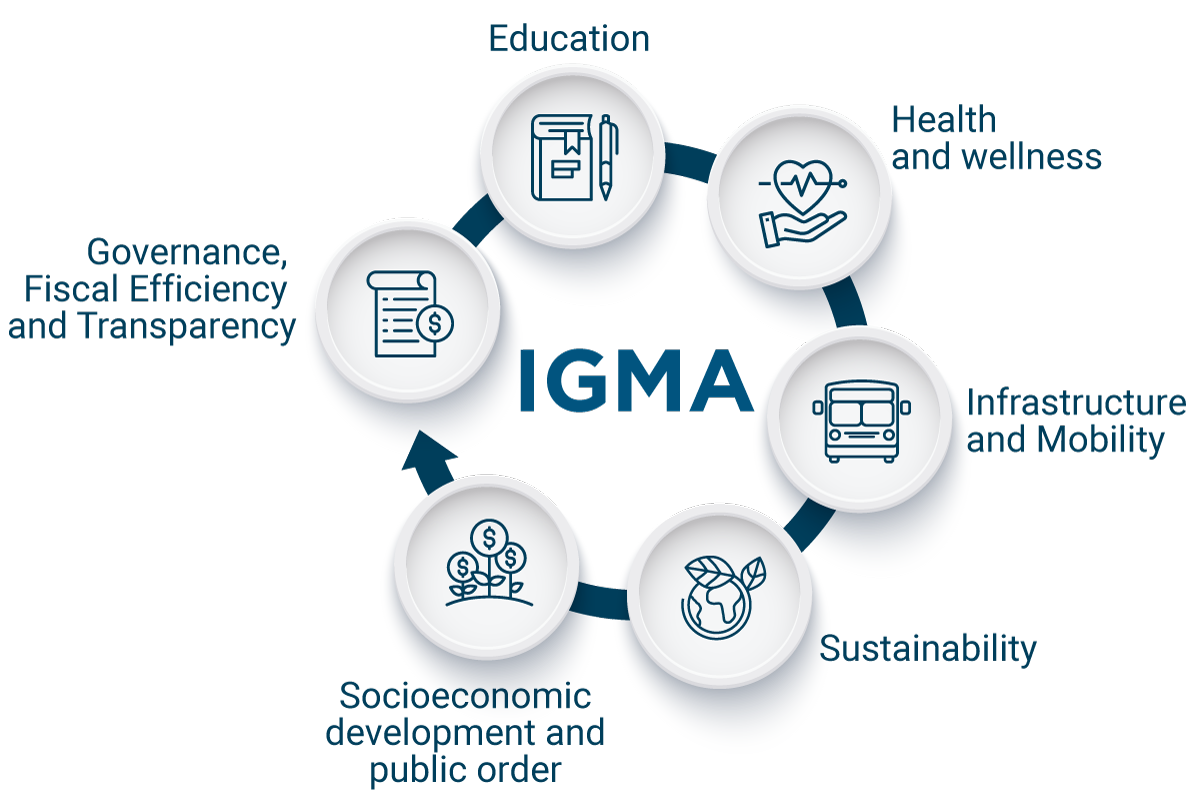
Through the IGMA algorithm it is possible to evaluate the excellence of the public management of the municipalities. Using big data, artificial intelligence and machine learning, it is possible to understand priorities, focus on good practices and support decision-making.
For public managers, the Excellent Cities methodology and the IGMA offer a broad, robust and complete platform to transform public administration and to offer better quality services to the population. All this to boost the virtuous cycle of human development around the world.
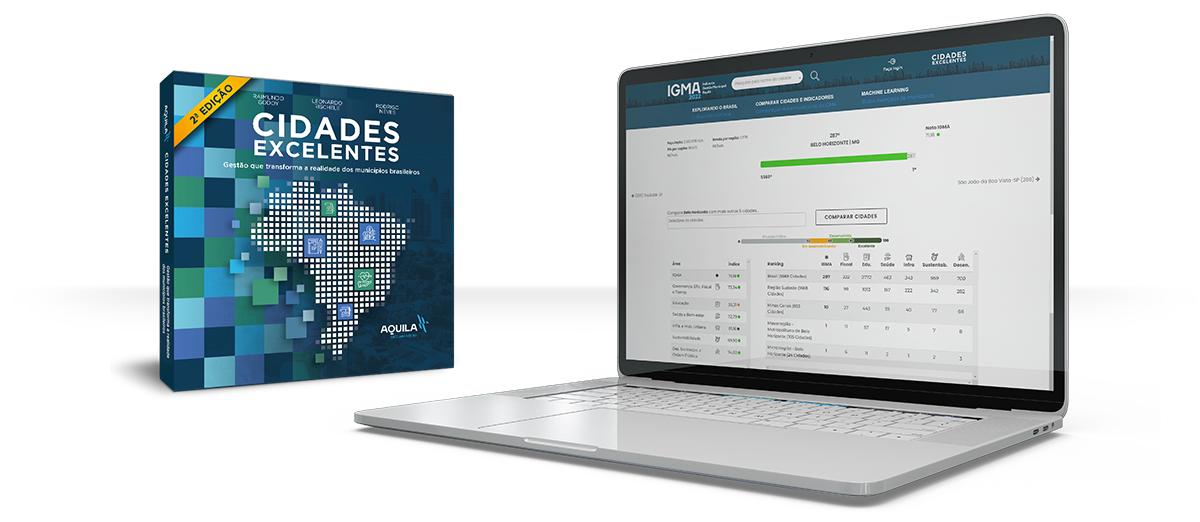
“Management is a dynamic science. 42 years ago, management was about solving good or bad problems. Then we moved on to face challenges. Today, what is management? The challenge is to anticipate the future. How do I bring the future into my present? How do I anticipate things? The IGMA platform provides this to 5,570 Brazilian cities”, explains Raimundo Godoy, president of Aquila Institute.
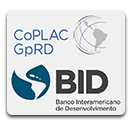 In 2020, the IGMA was chosen among the 3 best initiatives in Latin America by the IDB, the Inter-American Development Bank.
In 2020, the IGMA was chosen among the 3 best initiatives in Latin America by the IDB, the Inter-American Development Bank.
In 2021, the IGMA index was chosen by one of the largest media companies in Brazil as a technical parameter to acknowledge good practices in the management of Brazilian cities.
Bandeirantes Midia Group launched the Band Excellent Cities Award. In two annual editions, this event awarded 726 cities and had more than 700 projects submitted.
Testimonials
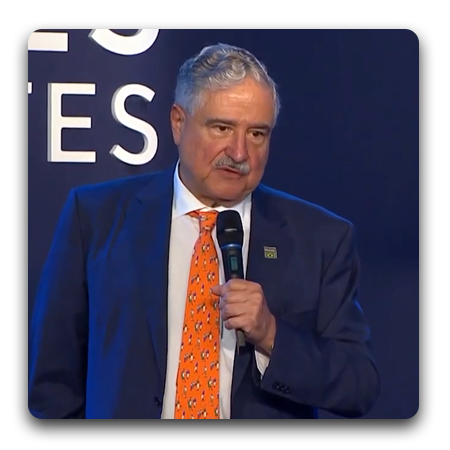
“This is our intention: to pay a fair tribute to the public managers, gentlemen and ladies, who achieved the best management indicators. It was very complicated to get the data, the numbers, the information. Standardizing the account plans, then parameterizing them so that we can compare, it was a much greater challenge than I had imagined.”
João Carlos Saad, President of Bandeirantes Midia Group.
“Happy to be here today honoring this event with a lot of celebration, a lot of sympathy and a lot of respectability and, above all, acknowledge of those who make their cities a better environment for the population and dignify the taxes that are paid. Congratulations to everyone who has already received their prizes and those who will still receive.”
Arthur Lira, President of the House of Representatives of Brazil
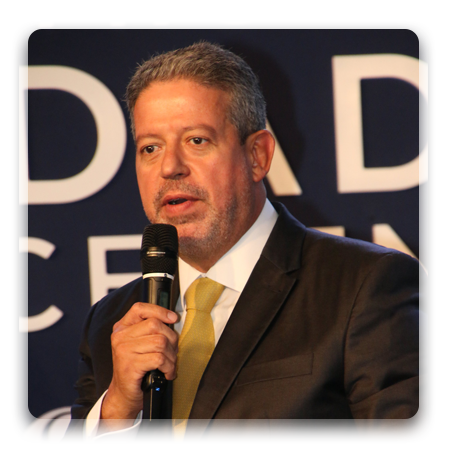
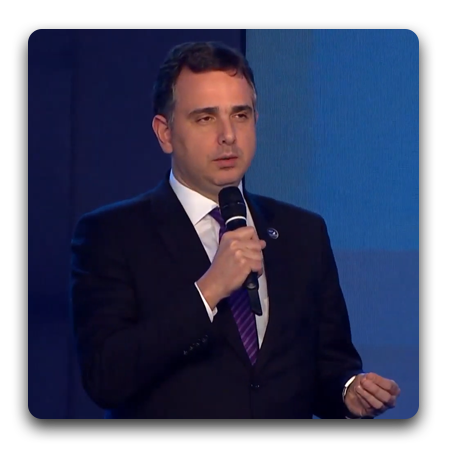
“This event is a demonstration of what an organized civil society can do in favor of Brazil, how the private can help the public in transforming the Brazilian reality. A Midia group that joins a Management group to be able to measure municipalities, provides public management instruments through the gathering of indicators, which remains a single indicator, to identify the qualified public management municipalities. This incentive to good management, good public management practice, public governance, through scientific methods, is essential for us to improve public management in Brazil.”
Rodrigo Pacheco, President of the National Congress of Brazil
“Brazil is the sum of 5,568 municipalities, plus the Federal District and Fernando de Noronha. All structural investments impact cities and every citizen is connected to a city. So, that was the first point where João Saad’s demand was important. The second important point is that 87% of Brazilian cities have up to 50,000 inhabitants. When we compare with the bigger cities, the income, the development is much higher than those in such smaller cities. Then distance and contrasts were increasing. And the third and most important is that excellence comes from the public sector.”
Raimundo Godoy, President of Instituto Aquila
